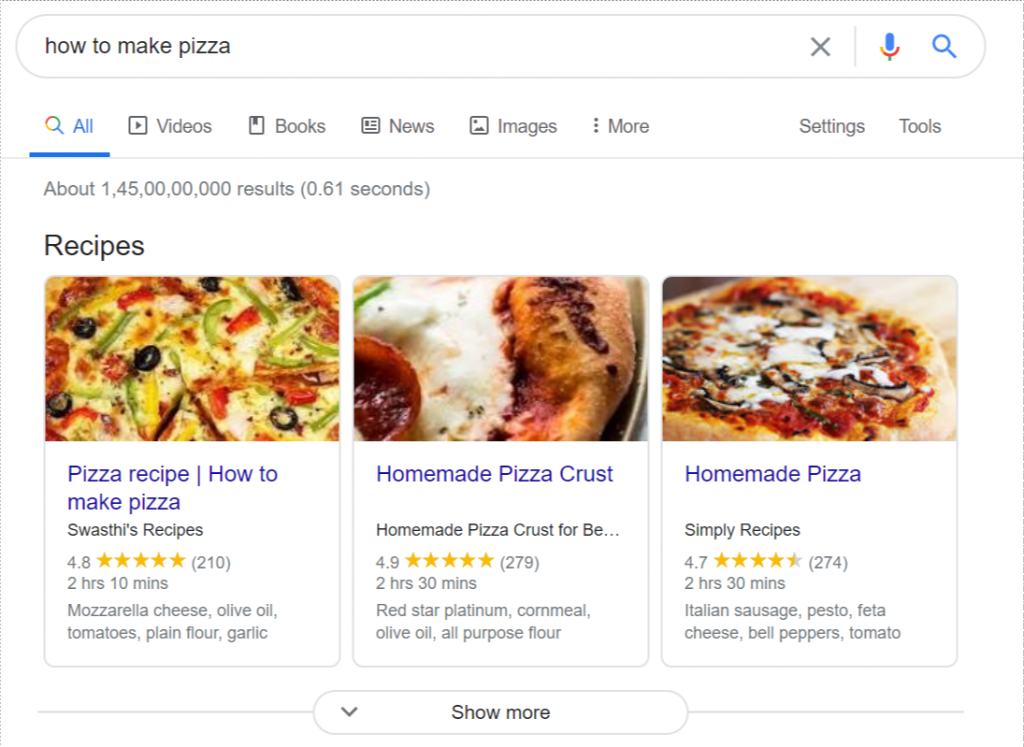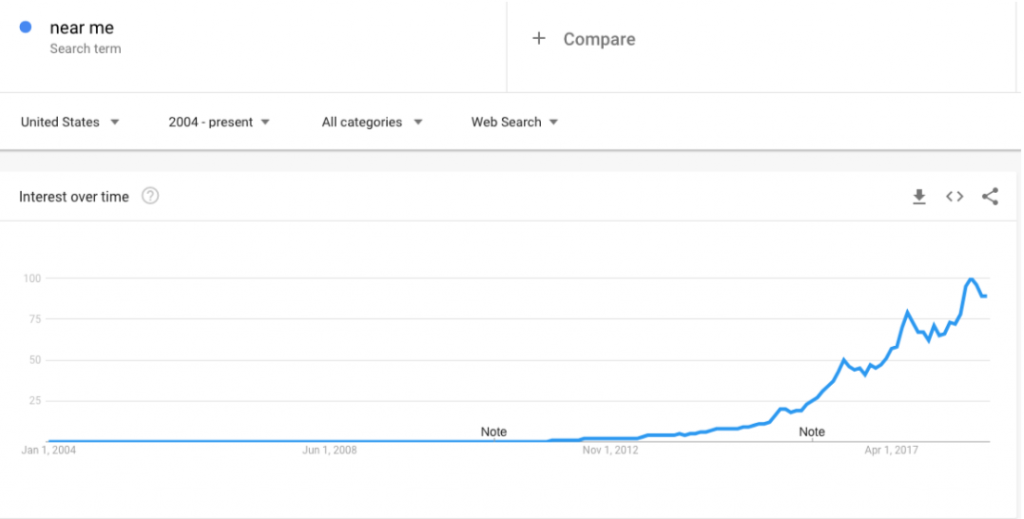Tell me if this sounds familiar to you. Every time there is a major Google algorithm update, the SEO world jumps to a frenzy on twitter with questions like – “Is SEO dead?”, “Is SEO really worth it now?”, “is SEO just keywords?”. And it quickly starts escalating with arguments and its counter-arguments. Which makes you start helplessly contemplating the existence of your well-built career.
2020 is a year that will be defined by the coronavirus pandemic. And, while we address that the current pandemic situation has had a major impact on many industries(read stats), we happily agree to disagree with you that SEO is useless right now especially for small businesses.
Well, today, however, we would like to take a break from all this brouhaha and remind you of the famous words of Mark Twain, “the reports of my death are greatly exaggerated”. Similarly, SEO rightfully intends to say these exact words to the rumour spreading folks.
SEO is not dead! In fact, it is as active as quicksilver, just that it is evolving rapidly catering to the search engines.
In 2016, companies had spent 65.26 billion dollars on SEO tactics. This figure rose to a brimming 79.27 dollars estimate in 2020. SEO is constantly evolving and many former tactics aren’t useful anymore.
In this article, we are going to talk about what you need to focus on in 2020 to emerge as a successful business. But before that, don’t you want to know how clever has Google evolved as a search engine?
The Rise of Modern SEO
The state of Google back in the day was nowhere next to the capabilities it has today. There were lots of black hat SEO techniques that used to work because Google’s algorithm couldn’t detect such frauds back then.
So, being the reforming engineers they are, they jump to action and wrote code to establish core algorithms like Panda, Penguin, Hummingbird. Precisely, their names seemed cute just like the animals they named it after, but it put an end to all shady techniques and sneaky strategies used in SEO.
If we fast forward to 2015-16, there was a rise in mobile search more than desktop searches on Google. And obviously, Google took notice of it and began adjusting its algorithms to deliver the best experience on this device and the concept of mobile-responsive design emerged.
And finally, in 2018, the core algorithm of mobile-first indexing was launched by Google which flipped out every marketer with countless questions. SEO seemed to be deterred at this point but it got back right on its feet applying best practices and tactics to their strategies.

The next revolutionary part of Google we are going to talk about is the emergence of semantic search. With the arrival of the Hummingbird update in 2013, Google confirmed the existence of RankBrain, which is an AI program used to help process Google’s search queries by looking for signals of human interaction with websites and rank those sites accordingly.

Now that’s how you rank your website better than your competitors. You need to create content that absurdly useful to your audience and provides value. Because Google always wants you to write content for your people and not for search engines!
SEO in 2020: What you need to be thorough with?
There are close to 500 ranking factors that we know about Google till date, but what is it that a marketer needs to know to keep up with the changes? What basics does one need to be thorough with to survive the battle further?
Get Your Technical SEO right!
For most marketers, the in-depth part of technical SEO would sound like a lot of mumbo jumbo, but here’s the deal, if your server isn’t healthy, no amount of SEO can fix it until you “look under the hood” first.
Server issues are often overlooked especially by small businesses. It is imperative to blend technical SEO with standard SEO practices so that you don’t miss out on some great competitive advantages. Here are some points you need to consider & implement:
- Be thorough with robots.txt
- Optimizing URL structure
- Schema.org Structured Data Implementation
- Canonicalization of URLs
- Server Log Analysis for monitoring your SERP performance
- SSL implementation ensuring security
- Checking for page speed with the help of metrics and other individual SEO elements.
- Cross-browser and cross-platform compatibility
- AMP for news publishers
- Pagination elements like next/prev
Optimize for User Search Intent
Ever since semantic search arrived, this has been a basic practice of SEO — to successfully fulfill the user intent is crucial for your optimization to be successful in 2020.
You must never compromise on creating content that aligns perfectly with the search intent of your target audience. There are 4 basic types of search intents: informational, navigational, commercial, and transactional.
Informational: as the name suggests, it is when a user wants to know something. Simple queries like “what’s the weather today?” or “How to make (a dish)” follow under this category and you would certainly not see ads for this.

Navigational: in this case, the user is specific with respect to his search. Queries like “amazon”, “facebook”, etc. fall under this category.
Commercial: this is when a user is searching for a specific product but hasn’t finalized on the purchase yet like “best sports shoes”, or “best coffee blender” etc.
Transactional: this is naturally when the user had decided on the purchase and queries like “buy nike shoes”, “buy iphone 10” fall under this one.
Optimize for Voice Search
In addition to creating high-quality content that matches it’s user intent, it is also the need of the hour to optimize for voice search. About 30% of all searches are done without a screen in 2020 (Gartner)
Given the rise in voice-search, all we have got to do is prepare for the upcoming flood of voice traffic. Here are few useful steps to follow when optimizing for voice search.
Target to User Intent
We cannot stress enough on this, which we have elaborated in the earlier part of the article. You would be way ahead of your competition if you solve for the user by going out of your way to anticipate what their questions are and how to answer them efficiently. You can do this with the help of state-of-the-art tools like SEMrush. Learn how to conduct an efficient Topic Research for your content where you can deep dive into what your users are searching for.
Aim to include Long-tail keywords
Keywords in voice searches are usually long and more complex. In fact, as high as 70% of all search traffic into the long-tail category.
Don’t neglect other search engines
There is no reason to neglect them. Apple’s Siri is powered by Bing as its primary search engine. It is imperative to create high-quality, relevant content that looks good on multiple devices and search engines and also serves the best from a coding standpoint.
Use Schema Meta Data
Schema is a form of markup language that provides additional information about their website. It’s just like meta data – that provides data about data. It is extremely useful for helping Google understand the data on your website, but it is the most under-utilized practices.
Optimize for “Near Me” searches
If your business is locally focused and you want quality traffic to your website, then it is imperative for you to optimize for this keyword. Voice searches and this keyword go hand-in-hand when searching for local shops and services. Here’s how Google Trends reported it –

Use GMB listing
Your GMB listing is to go-to option to view a short brief about your business – even before visiting your website! It gives you a Knowledge Panel which you can show to your users searching for your business. Like this –

Making the best use of this feature could get your local searches to your website.
Conclusion
SEO is relevant and more important now than ever! It just diminishes for a while and reincarnates in a different form.
And clever marketers adapt and acclimatize themselves to the changing norms and regulations.
Check Out Our Comprehensive Services Which Revolve Totally Around SEO.
Hope you found this piece helpful!



